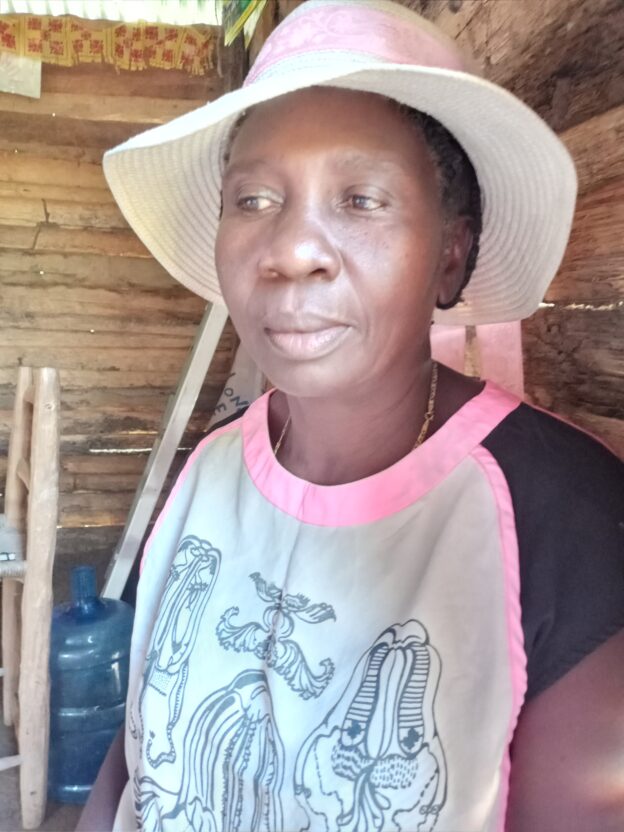Kapab is close enough to downtown Laskawobas that older children from Kapab can hike to Laskawobas for school every day. But it is, even so, a little out of the way. It is inaccessible by car and even by motorcycle. You can get there with one of the canoes that are used as a taxi around the Artibonit River and its flood plain, or you can hike uphill, to the top of the ridge that cuts it off from the nearest road. and then down into the valley, towards the river.
Jeannette St. Fort was born and raised in Kapab, and that’s where she lives with five of her six children and a grandchild. The sixth child, the grandchild’s mother, lives in Port au Prince, where she works as a maid. Jeannette’s husband died about four years ago, after a long illness.
Even before the man passed away, the life that he and Jeannette shared was difficult. He would find work as a day-laborer in neighbors’ fields, and Jeannette would walk to Laskawobas to do laundry for families there. Neither had a steady income, but both would work as many days as they could. It was enough to keep their children in school, but just barely. The children would frequently be sent home because of unpaid tuition.
Things only got harder when Jeannette’s husband died. She spent what little she had on the funeral. And it would not have been enough, but one of her regular laundry clients bought a casket for her. She continued to do laundry in Laskawobas, sometimes staying overnight to eliminate the constant back-and-forth. She has been able to keep her children in school, mostly through occasional gifts from clients who could tell that she needed help, but she will owe money when the new school year begins in November, and she doesn’t know where it will come from.
She’s excited to be part of the CLM program now. “They said they would help me fix my house. It’s falling apart. When it rains, we all get wet.” And she looks forward to raising livestock. She wants goats and a pig. “If you are careful and don’t waste what you get, the livestock will increase and you’ll be able to buy a cow.”
